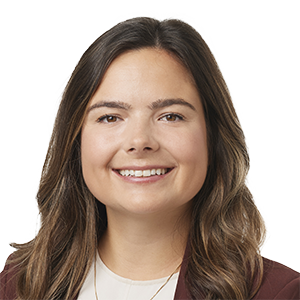Although many consider it an honour to be asked to act as an executor, the
responsibilities involved can be complex and time consuming. Understanding
them will assist you in choosing the person best suited to be your own executor,
and ensure any decision you may make to act as an executor is an informed one.
The duties of an executor include the identification and collection of the assets of
the estate, the safeguarding and investment of those assets pending distribution
to beneficiaries, the payment of debts and liabilities owed by the estate, the filing
of appropriate tax returns for the deceased and the estate, and ultimately the
distribution of assets to beneficiaries in accordance with the provisions of the
Will. What follows is a closer look at some of these and other responsibilities.
Locating the Will
An executor must use reasonable efforts to locate the last Will of the deceased. Even where a
Will has been identified, this means searching through all of the places where the deceased kept
his or her papers and records (and under the laws of some provinces, on electronic devices) to
ensure it is the most recent Will made.
If only a copy of the Will is found, the executor should check with the lawyer or law firm who
prepared the Will, if identifiable, to determine the whereabouts of the original Will. If a trust
company is named as an executor, it should be contacted to determine whether it holds an
original Will in safekeeping or has information concerning its whereabouts.
In British Columbia, a search of the Division of Vital Statistics Wills Registry must also be
conducted. The Will Search Certificate issued in response will indicate whether a Will Notice was
ever filed by the deceased. If so, the Notice will confirm the date and location of the original Will.
Funeral and burial arrangements
Although funeral and burial arrangements are usually made by family members, it is the executor
who has the legal authority to make those decisions. Interestingly, directions contained in a Will as
to the wishes of the deceased are not legally binding on an executor, although they are generally
followed. When making funeral and burial arrangements, unless the Will directs otherwise, an
executor must ensure the costs are reasonable in light of all of the relevant circumstances.
Identifying beneficiaries
The laws of many jurisdictions require an executor to mail a notice of his or her intention to
probate the Will, together with a copy of the Will, to all of the beneficiaries referred to in the Will.
In some jurisdictions, such as British Columbia, these materials must also be sent to the persons
who would have been entitled to share in the estate of the deceased if he or she had died without
a Will (i.e. the next of kin of the deceased), even if they aren’t named as beneficiaries.
If any individual is a minor or is mentally incapable, additional notice requirements will apply.
Ascertaining and valuing assets
The executor will also need to:
- list and value personal effects including paintings, jewelry, furniture, furnishings, boats and
automobiles;
- list and value the contents of all safe deposit boxes held in the name of the deceased;
- write to banks, trust companies, credit unions and other financial institutions where the
deceased may have had accounts;
- identify and secure all digital assets owned by the deceased;
- write to insurance companies to obtain particulars with respect to any insurance policies on
the life of the deceased and submit claim forms if proceeds are payable to the estate;
- determine whether there are any private or government pension amounts or death benefits
payable to the estate and complete and submit the forms required to obtain payment;
- collect any amounts owed to the deceased by his or her employer, including salary, holiday
pay and group benefit amounts;
- make inquiries concerning any registered retirement savings plans, registered retirement
income funds and tax free savings accounts owned by the deceased, and determine whether
a beneficiary designation in favour of any persons was made in respect of any such plans or
whether the proceeds are payable to the estate;
- conduct a title search in respect of all real property owned by the deceased and
obtain particulars concerning any outstanding mortgages, other encumbrances, and
related agreements;
- ascertain and value all other assets owned by the deceased, including business interests; and
- determine whether there are any debts owed to the deceased.
Safeguarding assets
Once assets have been identified, the executor must secure them pending their disposition or
distribution to beneficiaries. The executor should also:
- examine existing insurance policies on real property, household contents, automobiles, boats
and other tangible assets to ensure coverage is adequate and maintained while the assets are
under administration;
- ensure the regular inspection of property;
- consider how best to deal with investment accounts and publicly traded securities pending
the grant of probate from the Court, with particular attention to market volatility; and
- if the deceased owned a business, arrange for its ongoing management.
Debts and liabilities
The executor will also need to ascertain the debts and liabilities of the deceased by reviewing his
or her papers and records, including electronic records, and by making appropriate inquiries of
third parties. These debts and liabilities may include:
- funeral and burial expenses;
- medical expenses;
- expenses associated with real property owned by the deceased or other assets;
- credit card debt;
- lines of credit;
- debt secured by a mortgage or otherwise; and
- tax liability.
An executor should seek legal advice concerning the possibility of advertising for creditors,
which may provide protection in some circumstances from the claims of creditors who come
forward after estate assets have been distributed.
Tax returns
Another duty of an executor is to prepare and file appropriate tax returns for the deceased and
the estate. Depending on the circumstances, post mortem tax planning may also be advisable.
After the returns have been assessed by the relevant taxing authority, it may be advisable to
apply for tax clearance certificate(s) pursuant to the provisions of the Income Tax Act. If an
executor distributes the assets of an estate without obtaining a clearance certificate, he or she
may be personally liable for any unpaid taxes, interest and penalties owed by the estate. A tax
lawyer or accountant who is experienced in estate administration and related tax matters should
be consulted to discuss these issues.
If the deceased resided or owned assets outside of Canada, it may be necessary to prepare and
file tax returns in a foreign jurisdiction. Where appropriate, professional advice should be
sought in that regard.
Paying cash legacies and satisfying specific bequests
After the general administration of the estate has been completed, absent litigation or some other
complicating factor, the executor will be in a position to pay any cash legacies contemplated in the
Will and deal with the transfer of any personal effects and other tangible property left to specific
individuals. A signed Release, and in some cases a Release and Indemnity, should generally be
obtained from a beneficiary before any such payment or transfer is completed.
Residue of the estate
The residue of an estate is what is left after debts and liabilities properly chargeable to the estate
have been paid, cash legacies and specific bequests have been satisfied, and any testamentary
trusts have been funded. A properly drafted Will should specify who is to share in the residue
of the estate and, if more than one person, in what proportions. It should also address how the
share of a beneficiary who predeceases the testator is to be dealt with.
British Columbia Will variation applications
Under British Columbia law, a surviving spouse or child of a deceased (including an adult
child) has 180 days from the date the Grant of Probate or Administration is issued in respect
of the deceased’s Will to apply to the Court for a determination as to whether the deceased
made adequate provision in the Will for him or her. Upon the hearing of such an application,
the Court can vary the terms of the Will as it considers appropriate. Accordingly, where there is
a surviving spouse or child in circumstances where British Columbia law applies, legal advice
should be sought.
Keeping proper accounts
An executor must account to the residuary beneficiaries named in the Will (and sometimes to
others) for all the assets of the estate, including all receipts and disbursements occurring over
the course of administration. Beneficiaries are also entitled to review invoices, cheques and
other voucher material in support of the accounting. If a beneficiary is not satisfied with the
accounting, he or she may require that the executor have his or her accounts reviewed by the
Court. This is often referred to as a “passing of accounts”.
Accordingly, it is imperative that an executor keep an accurate and complete accounting of his
or her dealings with the estate assets, along with supporting voucher material. An executor
who cannot account for all assets, receipts and disbursements, may be personally liable for any
losses or assets not properly accounted for in respect of the estate.
Executors compensation
Unless the Will directs otherwise or the deceased and the executor have entered into a fee
agreement, an executor will be entitled to claim a fee for the time and effort spent administering
the estate based upon a statutory formula. For example, in British Columbia the maximum fee
permitted is 5% of the gross aggregate value, capital and income, of the estate. In that province,
an executor may also claim an annual care and management fee for the investment of estate
assets up to a maximum of 0.4 per cent of the annual average market value of those assets. If
there is more than one executor, the executors must share these fees.
When determining the actual amounts that should be paid, a Court will typically take into
account the following factors:
- the value of the estate;
- the care and responsibility involved;
- the time occupied in performing the executor’s duties;
- the skill and ability displayed by the executor; and
- the success achieved in the administration of the estate.
We can help
The lawyers in our private wealth, trusts and estates group regularly advise executors and
administrators on all legal matters pertaining to the administration of estates and the duties
imposed upon them, including:
- advising on the validity of Wills;
- identifying beneficiaries and next of kin who may be entitled to share in the estate;
- advertising for creditors;
- identifying assets, conducting title searches and advising on all property related issues;
- preparing and filing the documents required in support of an application for probate or
administration;
- after the Grant of Probate or Administration is issued by the Court, preparing the documents
required to transmit assets to the name of the executor or administrator and registering those
documents with the appropriate transfer agents (in the case of securities) and the Land Title
Office (in the case of real property);
- advising on claims made against an estate;
- advising on tax compliance matters and post mortem planning;
- preparing the documents required to transfer property to beneficiaries;
- assisting with the preparation of the estate accounting;
- preparing beneficiary releases; and
- if a Court review of the executor’s accounting is required, preparing and filing the necessary
affidavits and documents and attending at the hearing to have the accounting and any
compensation claim approved.
Conclusion
If you would like to discuss the duties of an executor or any other aspect of estate administration, the lawyers in our private wealth, trusts and estates group would be pleased to help.








